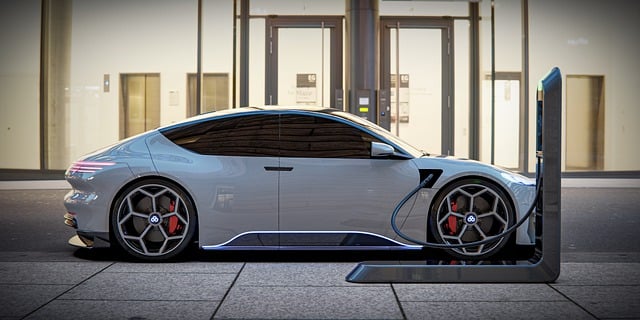As electric vehicles (EVs) gain popularity in India, it is crucial to develop an inclusive charging infrastructure that caters to the needs of EV owners living in multi-dwelling units and apartment complexes. While single-family homes have the convenience of private garages for EV charging, residents of multi-dwelling units face unique challenges in accessing charging facilities.
This article explores the importance and benefits of electric vehicle charging solutions for multi-dwelling units and apartment complexes in India, including shared charging infrastructure, smart charging technologies, and collaboration between stakeholders.
Overcoming Charging Challenges
One of the main challenges faced by EV owners in multi-dwelling units is the lack of dedicated parking spaces or garages for charging. Shared parking areas in apartment complexes may have limited access to electrical outlets or lack the necessary infrastructure for EV charging.
Addressing these challenges requires innovative solutions that provide convenient and accessible charging options for residents. By developing charging solutions specifically designed for multi-dwelling units, EV owners can overcome these obstacles and enjoy the benefits of electric vehicle ownership.
Shared Charging Infrastructure
Shared charging infrastructure is a practical and cost-effective solution for multi-dwelling units and apartment complexes. Shared charging stations can be installed in parking areas, allowing multiple EV owners to access charging facilities without the need for individual charging stations.

This shared infrastructure optimizes the use of available electrical capacity and reduces the costs associated with installing and maintaining multiple charging points. Implementing shared charging infrastructure encourages EV adoption among residents, promotes equitable access to charging facilities, and reduces the overall carbon footprint of the community.
Smart Charging Technologies
Smart charging technologies play a crucial role in managing and optimizing charging in multi-dwelling units. These technologies enable load management, allowing residents to charge their vehicles without overwhelming the electrical grid. Smart charging systems can distribute the available electrical capacity among EVs based on factors such as charging requirements, time of use, and grid demand.
This ensures a balanced and efficient use of electricity resources while minimizing the need for costly infrastructure upgrades. Smart charging technologies also enable remote monitoring, billing, and data analysis, providing valuable insights into charging patterns and electricity consumption.
Collaboration with Property Developers and Management
Collaboration between property developers, management companies, and EV charging infrastructure providers is essential in implementing effective charging solutions for multi-dwelling units. During the construction or renovation phase, developers can integrate charging infrastructure into the parking design, ensuring the provision of adequate electrical capacity and space for charging stations.
Property management companies can play a pivotal role in coordinating the installation and maintenance of charging infrastructure, addressing resident concerns, and promoting EV adoption within the community. Collaboration between stakeholders ensures a comprehensive and seamless charging experience for residents.
Government Incentives and Support
The Indian government has introduced various incentives and support programs to encourage the adoption of electric vehicles and the development of charging infrastructure. For multi-dwelling units, the government can offer incentives to property developers and management companies to incorporate charging infrastructure into their projects.
Financial subsidies, tax benefits, and reduced import duties on EV charging equipment can further incentivize the installation of charging stations in apartment complexes. Government support in streamlining regulatory processes and addressing policy challenges also accelerates the deployment of charging infrastructure in multi-dwelling units.
Integration with Renewable Energy Sources
Integrating charging infrastructure for multi-dwelling units with renewable energy sources further enhances the sustainability of electric vehicle charging. Solar panels can be installed on the rooftops of apartment complexes, generating clean energy for charging stations. This integration reduces the reliance on the grid and promotes the use of renewable energy in transportation.
Additionally, it offers an opportunity for apartment residents to actively participate in sustainable practices and reduce their carbon footprint by charging their EVs with clean energy.
Resident Education and Engagement
Resident education and engagement are key elements in the successful implementation of electric vehicle charging solutions. Informing residents about the benefits of electric vehicles, the charging process, and the availability of charging infrastructure encourages them to adopt EVs and utilize the charging facilities.

Educational campaigns, workshops, and community events can be organized to raise awareness and address any concerns or misconceptions regarding electric vehicles. Engaging residents in the planning and decision-making processes fosters a sense of ownership and promotes a culture of sustainability within the multi-dwelling unit community.
Conclusion
Electric vehicle charging solutions for multi-dwelling units and apartment complexes in India are crucial to promote widespread electric vehicle adoption and support the country’s sustainability goals. Shared charging infrastructure, smart charging technologies, and collaboration between property developers, management companies, and EV charging infrastructure providers are vital in overcoming charging challenges faced by residents.
Government incentives and support play a significant role in facilitating the installation of charging infrastructure, while integration with renewable energy sources enhances the environmental sustainability of electric vehicle charging. Through resident education and engagement, multi-dwelling unit communities can embrace electric mobility and contribute to a cleaner, greener future.
By developing inclusive charging solutions, India can create an ecosystem that supports the transition to electric vehicles, benefits residents, and promotes sustainable transportation.

